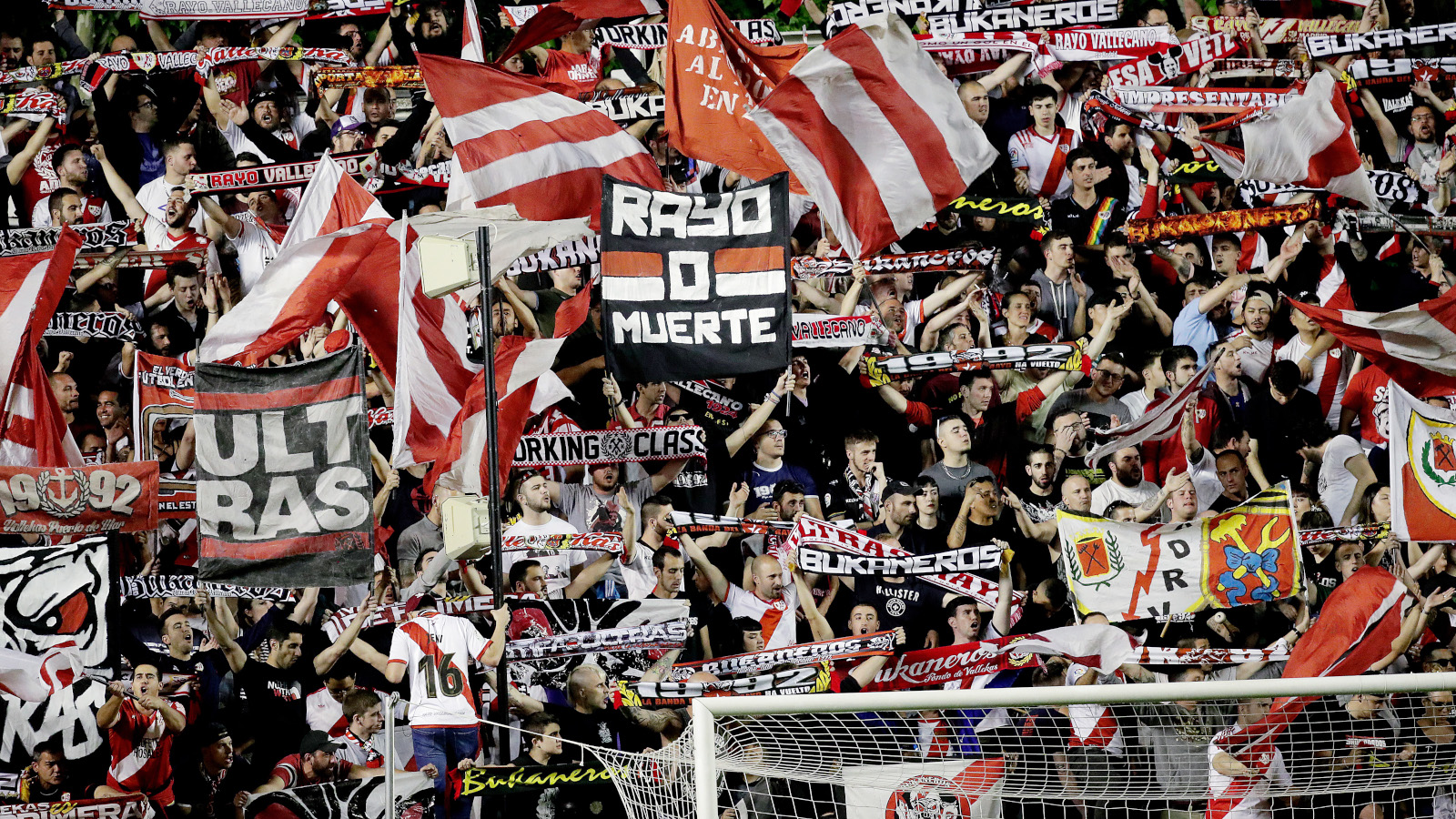What’s the use in being the same as everyone else? What’s the point of football if you’re only going to be a customer and a silent observer? Why not use the togetherness that comes with supporting your local team to do something good for the community? Rayo Vallecano, a big-small club from the Madrid neighbourhood of Vallecas and their fanbase have asked themselves these questions. And next season, entire Spain will be forced to answer them.A dramatic win in the promotion play-off gave Rayo Vallecano a slot in La Liga for 2021/22 season. And it’s going to be refreshing to have the proud little club rubbing shoulders with the rich while teaching them a thing or two about life in the real world.Former Manchester United winger Bebe plays for Rayo Vallecano (©Gallo Images)Football is often referred to as the sport of the working class, primarily due to the rich history and the origins of the game itself being rooted in working-class culture and Rayo has always thrived on the relationship with the local people. In the area of Vallecas, unemployment is high and most of the population are immigrants, first from the poverty-struck south of Spain, and more recently from abroad.The local football club serves as a source of pride for the community and is also used as a stage that the people of Vallecas use to vent their frustrations. At their humble ground, surrounded by drab housing blocks and one end of which is nothing but a brick wall, adapted versions of La Marseillaise, the Internationale and other classic proletariat chants are sung, while banners advocating Che Guevara, Anarchism, Communism and Socialism are flown along with the red, yellow and purple flag used by the liberal government of the 1930s.🎥 Cuando termina una final y sabes que has hecho HISTORIA… ⚡#SoyDelRayoYNoMeRindo NUNCA pic.twitter.com/aFZxcmDHQZ— Rayo Vallecano (@RayoVallecano) June 21, 2021 Everything at the club oozes with the desire of being different, of being better. The fans are well-known for their opposition to fascism, racism, homophobia and other ills, and have long remonstrated against the over-commercialisation of football. But it’s militancy with a smile, such as paying for their tickets with bags of one-cent coins in protest against rising prices.The Bukaneros are Rayo’s most radical and most vocal group of fans. They are noisy, anti-fascist, anti-racist, and utterly anti-establishment. The terraces at the Vallecas stadium are normally covered in political messaging, iconography and motifs. A sea of red, yellow and purple republican flags, images of Che Guevara, and socialist symbols. The stadium itself seats little over 14,000 Vallecanos but is home to a powerful political voice.Rayo Vallecano fans don’t just talk and sing. Their beliefs have a genuine impact on the way their beloved club operates. In January 2017, Rayo Vallecano sealed the loan signing of Ukrainian striker Roman Zozulya from Real Betis. Rayo would have expected his stay at the club to have lasted until the end of the season. Instead, it lasted a matter of hours. Ukrainian’s photos and messages in which he supported right-wing organizations came to light. Strong protests and shouts of “We don’t want a Nazi in Vallecas” forced the club to abandon the deal. Zozulya never played a minute for Rayo.Rayo is the pride of the neighborhood (©Gallo Images)When a local 85-year-old woman Carmen Martinez was evicted from her apartment near Rayo’s stadium, the club decided to pay her rent and establish a fund to fight homelessness in the area. These are just some examples of the way the club and its fans are working closely to help the people in the community.There is a social dimension that makes Rayo different. The immense majority of Rayo’s supporters are proud of what they claim to represent and who they represent. And after a two-season absence, the club has returned to La Liga to face their vastly different city rivals Real Madrid and Atletico Madrid, along with other rich teams from around the country. It’s not just about football – it’s about the people.

